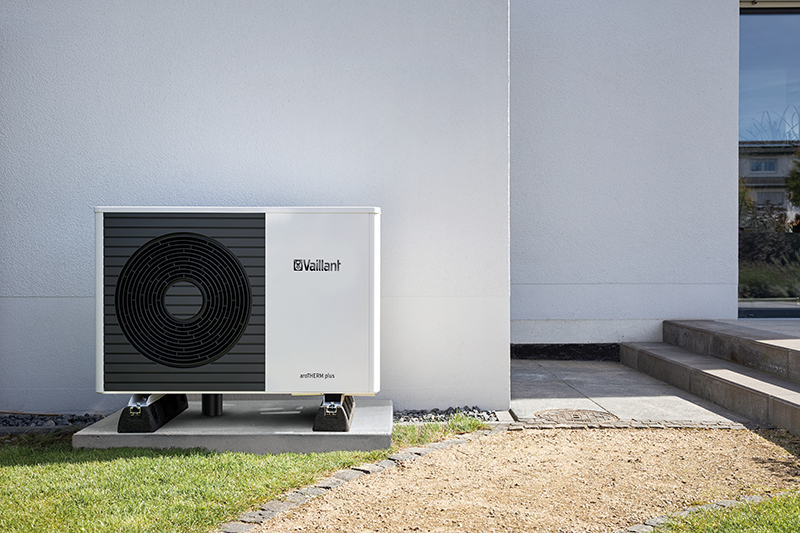Welcome, energy enthusiasts, to a world where innovation meets sustainability! Today, we’re diving into the realm of Hybrid Heat Pumps – a cutting-edge solution that’s turning heads in the heating and cooling industry.
Before we start exploring the world of Hybrid Heat Pumps, here’s something cool: you can save money on heating your home with the air source heat pump grant! Now, let’s figure out how Hybrid Heat Pumps work, what’s good about them, what’s not so great, and how they’re different from other heating systems.
But what exactly is it, and how does it work its magic to keep your home cozy in all seasons? Let’s embark on a journey to uncover the secrets of hybrid heat pumps, exploring their mechanics, advantages, and potential drawbacks.
What is a Hybrid Heat Pump?
A Hybrid Heat Pump combines electric and fossil fuel systems to keep your home comfy all year. Unlike regular systems that only use electricity or fossil fuels, hybrids cleverly mix both for better performance. It’s like having a superhero for your home’s comfort, making it just the right temperature without using too much energy. With this cool system, you save energy and enjoy a cozy home – it’s like having the best of both worlds right in your house!
How Does a Hybrid Heat Pump Work?
How Does a Hybrid Heat Pump Work? Now, let’s get down to the nitty-gritty of how these marvels work. At their core, Hybrid Heat Pumps are equipped with two components – an electric heat pump and a furnace.
At its core, a hybrid heat pump operates on a simple principle: adaptability. The smart system picks the cheapest and best way to make your home warm or cool, depending on the weather. When it’s not too hot or cold, the electric heat pump works hard to get heat from outside and bring it into your home in a clever way. It’s like having a super brain that knows how to keep your house comfy without costing too much!
However, when temperatures drop to bone-chilling levels, the furnace kicks in. This furnace is powered by fossil fuels like natural gas, providing a reliable heat source even in the coldest weather. The system intelligently switches between the electric heat pump and the furnace based on the outside temperature, ensuring you stay cozy while optimizing energy efficiency.
- Heat Pump Mode
In milder temperatures, the hybrid heat pump operates as an electric heat pump. It extracts warmth from the outdoor air and transfers it indoors to heat your home. This process is incredibly efficient, as it doesn’t rely on burning fuel but instead harnesses existing heat from the environment.
- Furnace Mode
When the temperature drops and the heat pump’s efficiency decreases, the hybrid system seamlessly switches to the furnace mode. The traditional furnace, often powered by gas or propane, kicks in to provide reliable warmth. This ensures your home stays cozy even during the chilliest winter nights.
- Automatic Transition
Switching between the heat pump and furnace is like magic – it happens by itself! The system knows when to change based on certain temperatures we set beforehand. So, you get the good stuff from both without having to do anything.
Pros of Hybrid Heat Pumps
- Energy Efficiency: Hybrid heat pumps are great at saving energy. They use the heat pump to get warmth from the air when it’s not too hot or too cold. When it gets really hot or really cold, they switch to the furnace. This smart switch helps use energy in the best way, making sure you stay comfy without using too much power. It’s like having a superhero for your home that knows when to use its powers to keep you cozy
- Cost Savings: Hybrid heat pumps can contribute to significant cost savings over time. When the weather is just right, the heat pump works well and uses less electricity. This helps save energy. But when it gets super cold, the furnace kicks in. The furnace uses fuel that can be cheaper, making it a smart way to keep costs down during the colder months.
- Environmental Friendliness: Hybrid heat pumps cut down on using regular heating methods, which is good for the environment. They grab heat from the air around them, making home heating greener and more sustainable. It’s like a small step towards helping the planet!
- Versatility: Hybrid heat pumps offer versatility, adapting to changing weather conditions seamlessly. This adaptability ensures that your home remains comfortable throughout the year without the need for constant adjustments or manual intervention.
Cons of Hybrid Heat Pumps
- Upfront Cost
While hybrid heat pumps offer long-term savings, the initial installation cost can be higher compared to traditional heating and cooling systems. Homeowners should weigh the upfront investment against the expected long-term benefits.
- Maintenance Complexities
The hybrid nature of these systems introduces additional components, potentially leading to more complex maintenance requirements. Homeowners should ensure regular professional inspections to address any issues promptly.
- Climate Dependency
The efficiency of the heat pump mode is dependent on outdoor temperatures. In extremely cold climates, the heat pump’s effectiveness diminishes, necessitating the use of the furnace more frequently.
Conclusion
Imagine a special heating and cooling system for homes that are smart and can keep you comfy while using energy wisely. This cool system is called a hybrid heat pump. It’s like a mix of an electric heat pump and a regular furnace, giving you the best of both. Even though it might cost a bit more at first and needs some care, it can save a lot of energy and help the environment in the long run. So, if you want a cozy home that’s not too expensive to keep comfy, the hybrid heat pump is a great choice!



